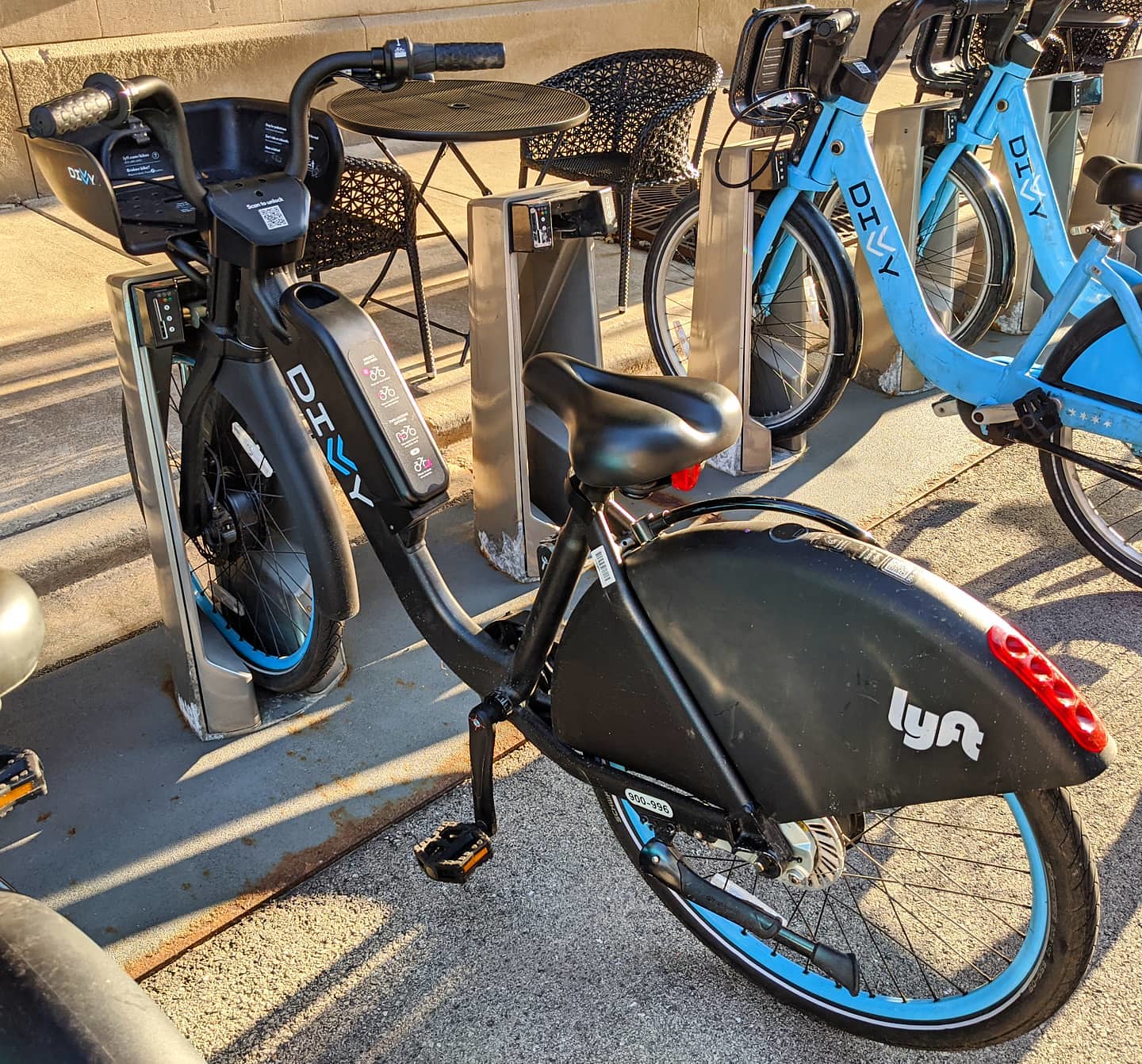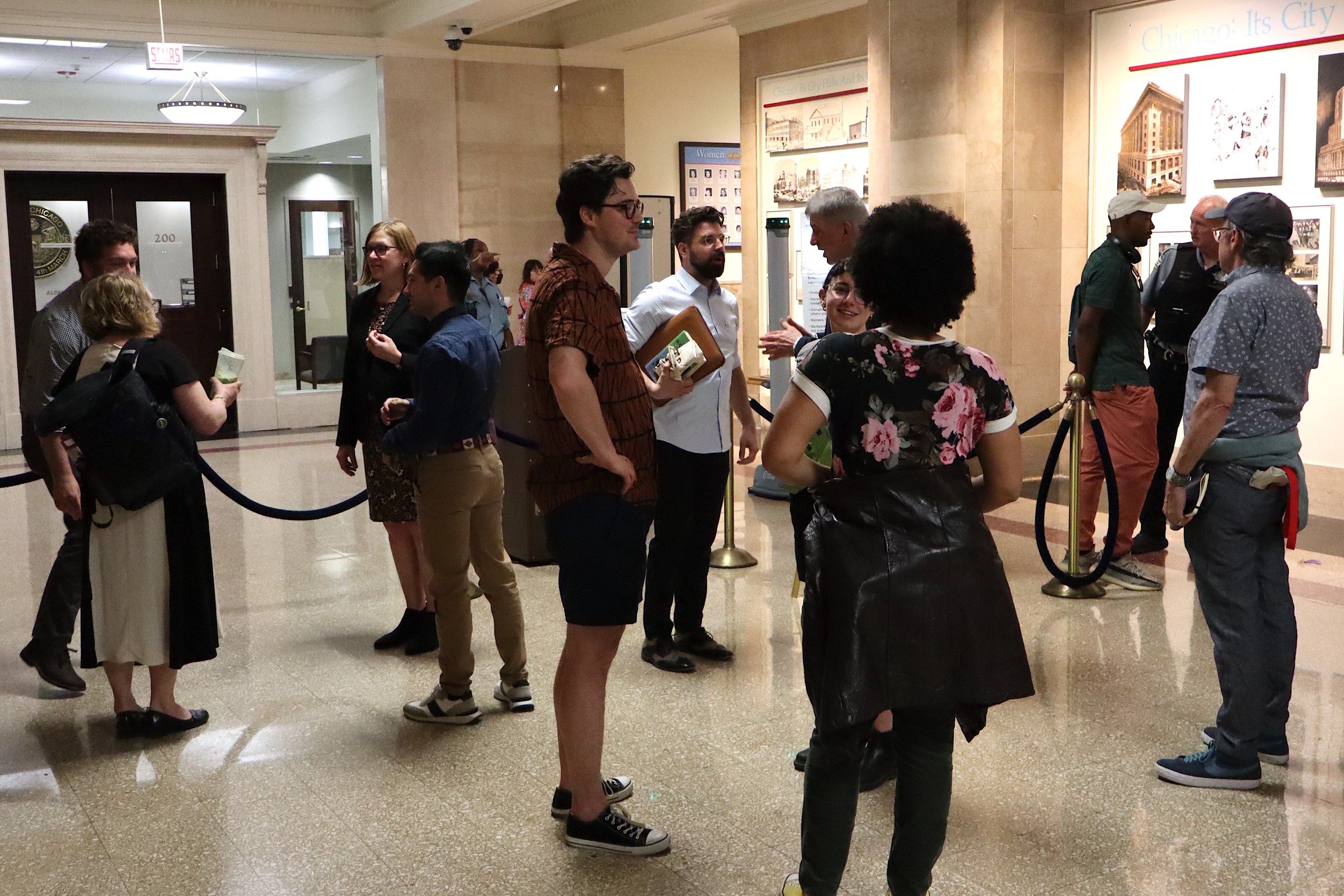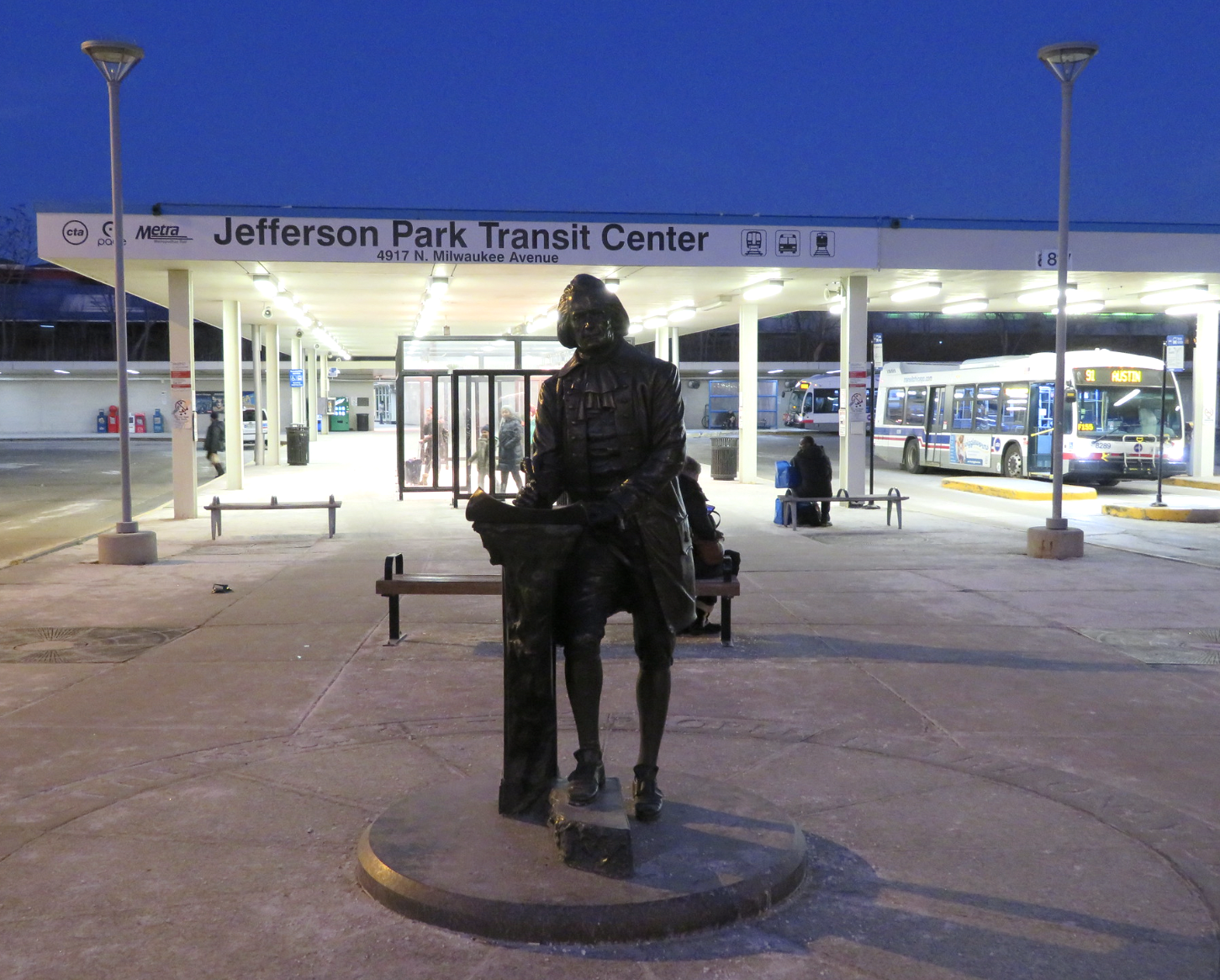The Chicago Department of Transportation and Lyft, the Divvy bike-share concessionaire, have provided multiple different conflicting explanations on why the new black electrical-assist bikes were faster than the advertised 15 mph for a while, but are now slower. It's been a super-confusing situation.
But after obtaining internal CDOT emails through a Freedom of Information Act request, we may have a better idea of what really happened. It turns out that the higher speeds weren't an accident, as CDOT and Divvy previously told us, but rather an intentional, albeit quiet, test of an 18 mph cap.
Before digging into the emails, here's a review of what we knew, or thought we knew, before receiving the FOIA request response.
- Prior to the July 29, 2020, e-bike launch, the city said the electrical assist would be capped at 15 mph.
- However, at times last year the bikes were actually faster, approaching 20 mph.
- On November 20, in response to complaints from customers that the bikes had recently gotten slower, someone tweeted this explanation from the Divvy Twitter account:
This speed cap was implemented at launch but was not actively turned on for riders. This has since been fixed and has been back on as of about 6 days ago! We're sorry for the inconvenience and we'll pass this feedback about the "brake feel" when riding.
— Divvy (@DivvyBikes) November 20, 2020
- However, on December 10 Lyft's head of transit, bike, and scooter communications Jordan Levine provided a different story. He told Streetsblog the 15 mph cap was in place when the e-bikes were first deployed in July. But Levine added that after the system was taken offline during a period of Black Lives Matter-related civil unrest around August 10, the cap wasn’t reset again until roughly November 14.
- But some Divvy riders, plus a Time Out Chicago review of the bikes, reported that the bikes were going 20 mph shortly after they launched in July, which contradicts Levine's account that the speed cap was functioning at that time, but jibes with the explanation from the November 20 Divvy tweet that it wasn't.
Got all that?
Along with the stack of emails that CDOT sent yesterday in response to our FOIA request, department spokesperson Susan Hoefer provided the following statement about why the Divvy tweet and Levine's story conflicted:
We did additional research to clarify the various answers you received about the speed caps on Divvy e-bikes. The Divvy customer service office gave you the wrong information. The Divvy customer service is the national Lyft Bikes and Scooters call center that deals with multiple markets. In most other markets, the bikes are capped at 20, whereas [CDOT] made the choice to cap at 15 for safety reasons. The bikes here did launch at 15 but were inadvertently not reset at 15 when the system was shut down due to protests and/or geofence testing.
So Hoefer basically confirmed Levine's explanation.
But the FOIAed emails between CDOT, Divvy, and Lyft staffers indicate that the people in charge of the system were actually confused about the capping timeline themselves.
In a November 24 group email, Lyft micromobility policy manager Ron Burke (formerly head of the Active Transportation Alliance) forwarded my November 23 Streetsblog post based on the November 20 Divvy tweet, reporting that Divvy's were uncapped between July and mid-November. "I thought 18mph only lasted a couple of weeks but John suggests it was in place until recently. Did he get this wrong?"
"It was several weeks to several months," responded CDOT assistant commissioner Sean Wiedel, who oversees the Divvy program. "We’re unsure."
Here's another interesting takeaway from the email trove. On December 10, in response to my question about why CDOT chose to limit Divvy speeds at 15 MPH, when other Lyft-run bike-share systems are at capped at 18 MPH or more, CDOT spokesman Mike Claffey provided the following statement:
CDOT's decision to cap the speed of Divvy e-bikes at 15 MPH was based on our focus on traffic safety. We took a cautious approach to introducing thousands of powerful new devices into Chicago's dense traffic environment, which includes often busy bike lanes and shared-use trails. We will continue to monitor the performance of the speed cap.
But a November 23 email from Claffey to CDOT managing deputy commissioner Kevin O'Malley with a draft statement about the speed change included additional info the department never provided to Streetsblog until now. I've bolded the key passages.
When e-bikes launched earlier this year, the city of Chicago and Lyft agreed to setting the maximum pedal assist to 15 mph. Recently, for a few weeks, the e-bikes were allowed up to maximum assist speed of 18 mph. However with winter weather approaching, we have ended this short test out of an abundance of caution. We understand that people may prefer faster speeds. After the winter, we will consider increasing speeds again.
So that indicated the temporary higher speeds were intentional, not inadvertent. But, again, the following day Sean Wiedel said the department wasn't sure whether the 18 mph cap lasted several weeks or several months.
So the timeline is still fuzzy, and it's still not even clear if CDOT, Divvy, and Lyft know exactly what happened. But what we do know is that at one point these decision-makers believed it wouldn't be dangerous for Chicagoans to ride Divvies at higher speeds. That should provide ammunition for people who want to see the cap raised again.




